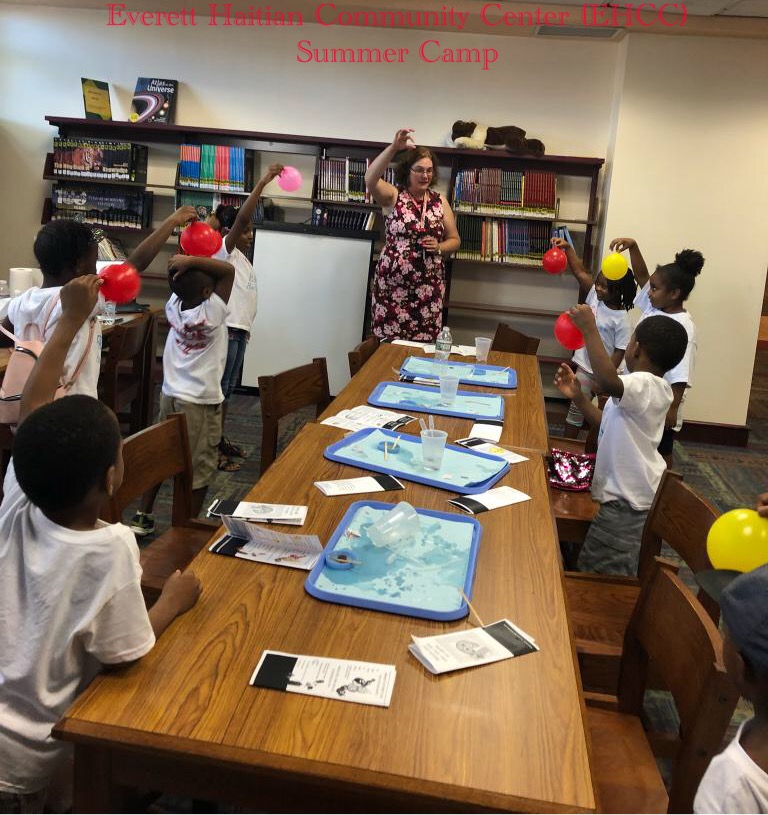Aug
20

Posted by karencoghlan on August 20th, 2018
Posted in: Blog
Tags: community engagement, data_science, Health Literacy, Instructional Design, Teaching, youth

One of the questions always asked on the first day back from summer break is: “What did you do this summer?” For many kids summer camp may be involved, either as a camper or as a camp counselor. Summer camp experiences can have a multitude of positive influences, such as building character, teaching independence and exploring new frontiers and gaining different skills. This summer, I had the pleasure of being a guest speaker at several summer camps. Of course for kids at camp, hands on engaging activities and experiments have to be involved (and of course the messier the better.)
In one program high school aged kids were gaining technology skills using mapping software called ARC GIS (https://www.arcgis.com/index.html),as a guest speaker, I was able to review data literacy and had the campers evaluate what characterizes a good data set. Using pre-selected data sets, the campers used a checklist to critically evaluate the data set. One of the data sets involved cell phone coverage in various countries, and one camper who was traveling out the country to visit relatives in Africa found it fascinating that their cell phone would still work.
In another camp, at the Everett Haitian Community Center, I was asked to create a program on kids health. In this camp visit we discussed what foods to eat for healthy teeth and explored the ToxNet databases. The campers learned about the pH scale that measures the strength of acids and bases. We mixed household chemicals to blow up a balloon, made elephant toothpaste and cleaned pennies with a weak acid. They learned about how the environment can impact human health and what they can do to stay healthy. It was a great experience. I hope the kids had as much fun as I did.
Listed below are some of my favorite resources that were highlighted in the camps:
The great news is even if summer camp is over it is never too late to stop exploring and gain new skills. As the school year gears up and if you are curious about what chemicals are in the products you use everyday, such as your toothpaste or shampoo, look at the ToxNet databases you might be in for a surprise. Or maybe your stuck in a line, download and play ToxInvaders on your i-Phone. It is great entertainment for you and the kids and it may help them brush up on their science for the upcoming school year.